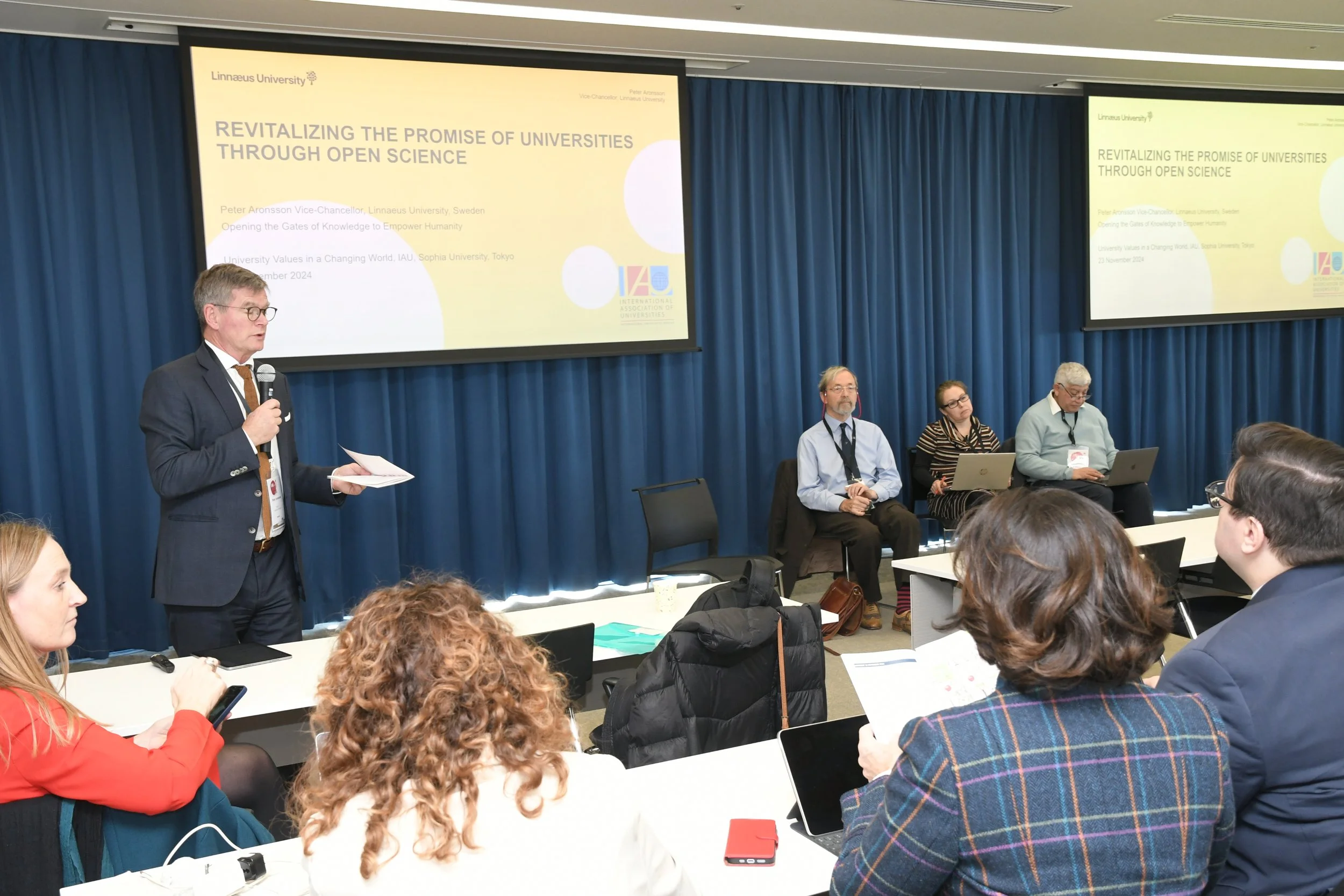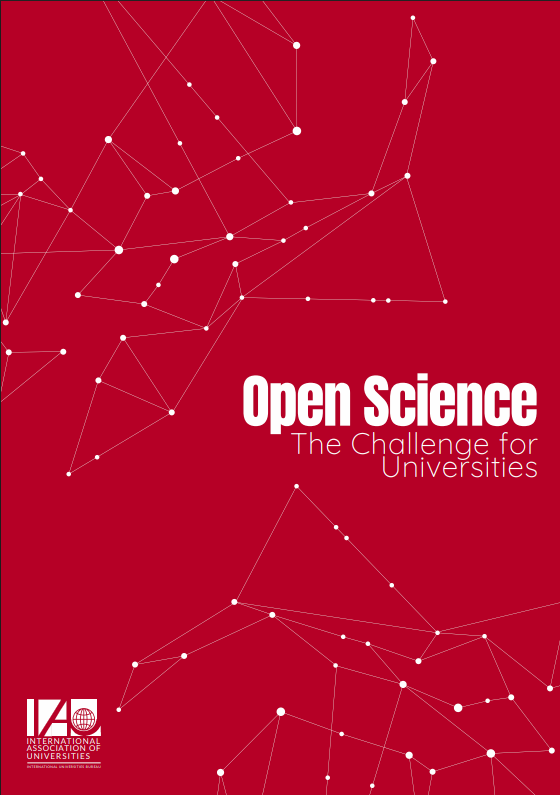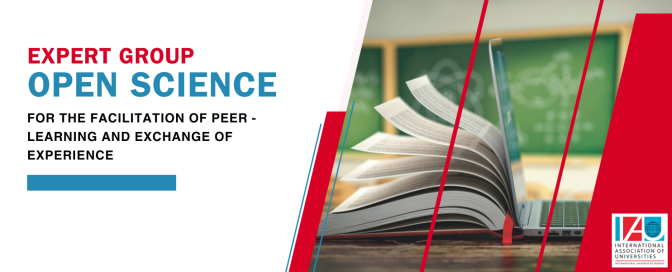Open Science
The IAU advocates for open science as a key element of its vision for higher education that serves the global common good. Open science ensures that scientific knowledge is accessible, reusable, and inclusive, promoting open access to research outputs, open infrastructures, and engagement with diverse knowledge systems.
As outlined in the 2022 IAU Policy Statement on Digital Transformation, the IAU calls for a humanistic, ethical, and inclusive digital transformation—of which open science is a central pillar.
Open Science: The Challenge for Universities
The IAU convened an international expert group on Open Science to identify the challenges for universities in the transition toward open science and to provide recommendations how universities can contribute to shaping the way forward. The group has collectively worked to develop the report: Open Science: the Challenge for Universities.
Expert Group on Open Science
The IAU international Expert Group on Open Science brings together expertise and knowledge from all regions of the world to share experiences and discuss how universities can contribute to the implementation of the norms and principles laid out in the UNESCO Recommendation on Open Science.
The Expert Group on Open Science develops recommendations on potential actions that can support institutions in this complex transition, shares best practices and experiences, and identifies what type of research, evidence and data collection can serve universities in their transition towards Open Science.
The purpose of the Expert Group is to provide policy advice for the leadership of universities, based on the following objectives:
Make Open science an institutional priority and invest in Open Science initiatives that support organizational change. For example, revising policies to include incentives for open research and data.
Build capacities and awareness about Open Science and to address issues of concern such as legal and ethical aspects around privacy, intellectual property and open licenses.
Contribute to connecting and building infrastructure to support Open Science practices and make use of or develop repositories for information and data sharing.
Participate in international research collaboration to build standardization that will facilitate data sharing and management practices both nationally, regionally and globally.
Build trust in science by engaging in science communication and collaboration beyond the traditional scientific community.
Identify the key challenges that hamper the transition towards open science such as predatory scientific practices that erodes the ideals of Open Science.



